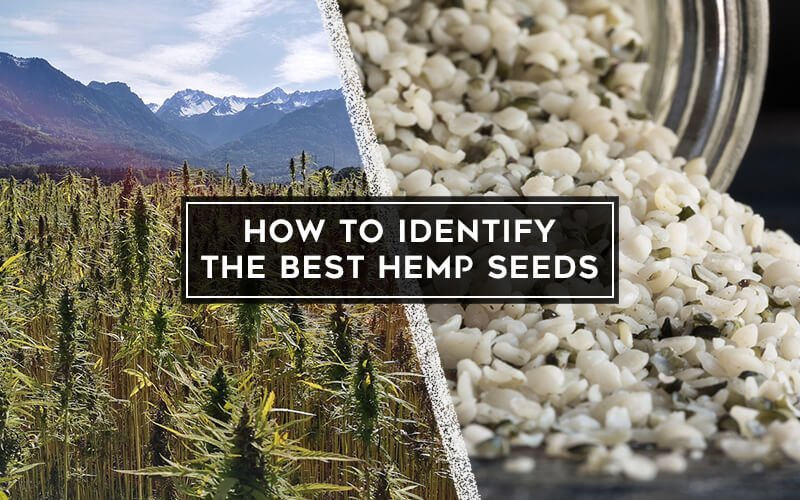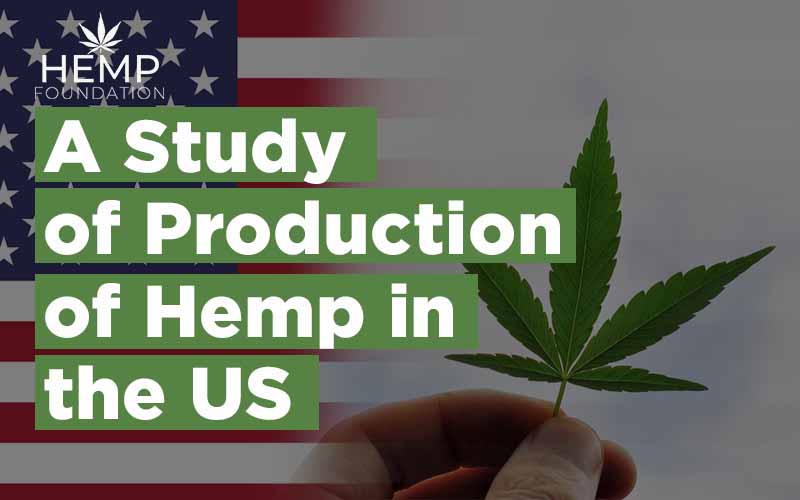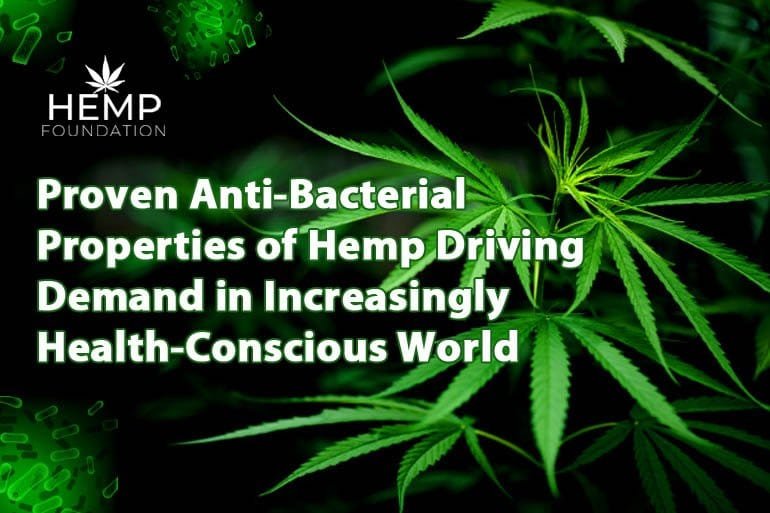How to Identify the Best Hemp Seeds
For anyone associated with the hemp industry, it’s vital to know how to identify hemp seeds for quality. That, and much more, is covered in this guide.
In recent times, a third name has been added to wonder seeds chia and flax: hemp. Described as nature’s most balanced seeds, hemp seeds are exceptionally nutritious. According to information available on the US Department of Agriculture website, every 100 grams of hemp seeds contain:
- 553 kilocalorie of energy
- 31.56 grams of protein
- 38.1 grams of polyunsaturated fatty acids (PUFAs)
- 5.6 grams of monounsaturated fatty acids (MUFAs)
- 4.6 grams of saturated fatty acids
- 0 trans-fatty acids
- 0 cholesterol
- Several necessary minerals such as calcium, magnesium, potassium
- Vitamins A, B-6, C and E
Hemp seeds constitute one of the most complete plant protein sources as their high protein content can supply all the 10 amino acids that the human body needs. The fatty acid profile of hemp seeds is truly extraordinary as they contain fats that are good for the body.
PUFAs and MUFAs are good fatty acids while saturated and trans fatty acids are bad for the body. Hemp seeds contain no trans fat and very little saturated fat. However, the epithet ‘nature’s most balanced seed’ is due to the ratio of omega 3 and omega 6 fatty acids are in these seeds.
Both these fatty acids are critical for human health. However, the way they interact with one another makes a 1:3 ratio ideal of human beings. One portion of omega 3 fatty acids to three portions of omega 6 fatty acids.
That is the exact proportion in which these fatty acids are present in hemp seeds. Every 100 grams of hemp seeds contain 10.024 grams of omega 3 and 27.459 grams of omega 6 fatty acids.
You already know more than many people on how to identify hemp seeds for quality. Read on for more.
The Challenges in Buying
With more countries legalizing the cultivation of hemp and the use of its products, companies supplying hemp seeds and other products from this multifaceted plant are mushrooming in the online marketplace. The question is, how do you ensure that you are buying good quality hemp seeds?
This question has two levels. Buying good hemp seeds happen at two levels. New farmers gearing up for growing hemp as a rotation crop need to know where to buy good seeds from. Similarly, end-users also need to know how to recognize good seeds for use as a dietary supplement.
The good news is that hemp farming is not really new. It has been in human use for centuries until it got mistakenly categorized as a drug in the late 1930s. It has been out of circulation for less than a century. That implies there are many lessons learned from centuries of hemp farming.
But what about end-users? How would they know good hemp seeds from bad ones? Thankfully, in the current digitized world, there are several resources that can guide one’s choice. In this article, we offer some tips for both farmers and end-users to help them segregate good hemp seeds from bad ones.
How to Buy Good Hemp Seeds for Farming
When it comes to buying seeds for hemp farming, our first suggestion is: be ready to spend a little extra. You will more than recover it in your crop quality. Also, remember that the kind of seeds you buy will depend on what you intend your hemp crop to be used for.
There are differences in farming methods for hemp grown for seed use and hemp grown for fiber use. That also influences seed buying decisions.
Feminized Seeds for Seed Use
If you intend your hemp crop to be used for their fibers, having a high number of male plants doesn’t really matter. However, if you intend your plants for seed use, look for feminized seeds. They will cost you a little higher than unmarked seeds, but male plants in your crop will also be considerably less.
Look for Certification
In countries like Canada and the EU countries, there are centralized certification bodies. With hemp being federally legalized only through the Agriculture Improvement Act of 2018 (Farm Bill 2018 in popular parlance), such centralized quality control is yet to be in place.
So, there are two options: buy seeds that have come from Canada or the EU countries. If you are a hemp farmer in any of these countries, you already know what you need to look for. This is more for farmers in the US and other countries where hemp has been legalized only recently.
As a new hemp farmer in the US, you can safely buy seeds imported from Canada or the EU. However, they will naturally be more expensive than home-grown ones. Domestically grown hemp seeds are also available in the US since several states legalized hemp production before 2018.
Universities have played an important role in the quality control of hemp farming prior to the Farm Bill 2018 and they continue to do so. You will find seeds with quality certification from a university of repute. Go for them.
There may also be certifications from state departments of agriculture from the states where hemp had been decriminalized before 2018. Needless to say, such certification is equally reliable.
Look for Seed Sellers with Proven Track Record
There are such companies if you look for them, even in the US. From states that had preceded the federal government in decriminalizing hemp. There are others from Canada and the EU countries also. Do your own research to identify them.
Check the kind of certifications the seed seller offers. Check the reviews and engage in conversation with users for more detailed and in-depth insights. You will likely end up choosing the right seed seller and buying good hemp seeds for your new rotation crop.
How to identify hemp seeds for safe and healthy consumption?
There are several measures you can adopt to ensure that you buy good quality hemp seeds for use as a dietary supplement. Or to cold-press them at home with your hand-cranking machine for some pure hemp seed oil.
Buy from Certified Companies
There are strict quality control restrictions in place if you buy from these companies in these countries. You can relax about the quality issue. If you are looking for a US-based company, look for one from the states where hemp got legalized before the Farm Bill 2018 came into force.
More importantly, look for the kind of authentication they offer. Genetic certification of seed quality from the state department of agriculture, a reputed university, or a recognized laboratory is essential.
In other countries where hemp has only recently been legalized, search Google to find out which companies/ agencies have government approval.
Do Your Own Research
One great advantage of the internet era is that consumers can look for information on products in myriad different ways. Spend some time doing your research on the internet. Look for user reviews in online marketplaces like Amazon. Read user reviews carefully.
Do not be happy with just the top few reviews. Search for negative ones. If you do not find answers to specific questions like laboratory certification r seed quality, post your question. If the manufacturing/supplying company does not respond within 48 hours to your question, start looking for a different one.
Do A Price Comparison
So, your first step is to mark the country where the manufacturing company is located. The second step is to ensure that their product has authentication/ certification by a relevant authority. The third step is to engage with user reviews and find out more.
Go for a price comparison only after completing these steps. The cheapest product may not be the best. However, after ensuring the other three criteria, it makes perfect sense to choose the company that offers the most competitive price. Now that you know how to identify hemp seeds for quality, you can purchase better.
Sources:
Buying Viable Hemp Seed? What You Need To Know…




